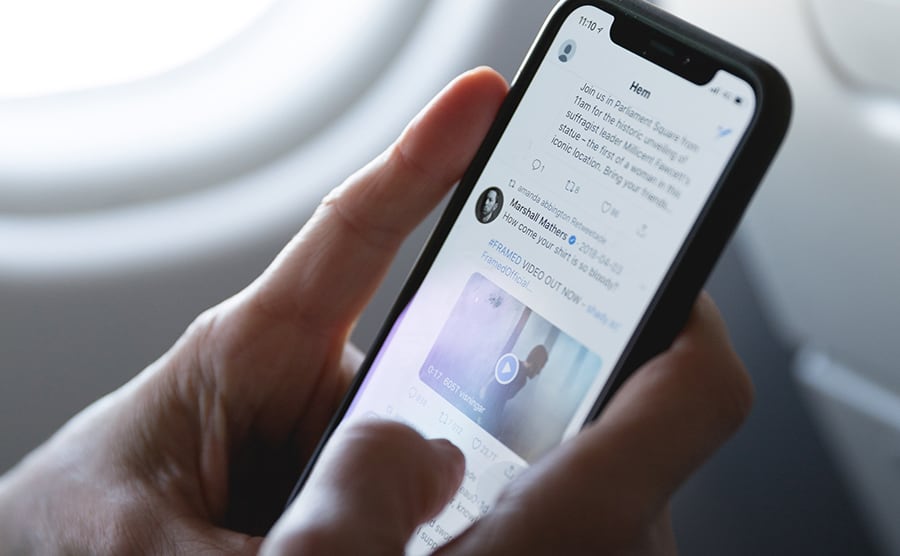After the Russian disinformation campaign that was widespread across social media during the 2016 U.S. elections, many people are now much more aware of just how easy it is to set up fake social media profiles. Not only this but these fake profiles can be used to form networks that artificially amplify a specific message. Proxyway researchers found out that a lot of proxy networks are used for this exact case. By essentially gaming social media algorithms, a malicious actor can manipulate them to push any message they want and make it seem organic.

As part of a response to perceived failures during that time period, social media platforms have since made an effort to rid their platforms of bots and fake accounts. So far, these efforts have had varying degrees of success. No social media platforms have been very open concerning the prevalence of bots on their platforms. Twitter has been one of the better examples, and earlier this year they released a brief report to the public concerning foreign information operations on their platform.
That report identified a number of countries that have been involved in concerted information campaigns using Twitter, but three, in particular, stand out. They are the UAE, China, and Venezuela.
UAE
Recently, Twitter suspended a network of just over 4,000 accounts that were associated with the United Arab Emirates government. These accounts used fake names and were tweeting almost exclusively about Qatar and Yemen, two issues of importance to the UAE government. The accounts were managed by a private company, known as DotDev, which describes itself as a custom software solutions company that is headquartered in Abu Dhabi.
This action from Twitter comes just a month after Facebook revealed that it had suspended a network of some 350 accounts linked to a marketing firm called New Waves in Egypt, with a subsidiary, Newave in the UAE.
China
Both Twitter and Facebook have accused the Chinese government of using their platforms to undermine the ongoing protests in Hong Kong. In recent weeks, Twitter has suspended just under 1,000 accounts associated with what appears to be a coordinated and state-sponsored effort to undermine the protests and spread of false and misleading narrative and social media platforms.
However, if this number seems small, it should be noted that Twitter had taken action to pre-emptively ban some 200,000 accounts in what it called proactive suspensions, disabling a much larger network capable of delivering a much greater volume of spam before it could be activated.
The ongoing protests in Hong Kong represent a serious challenge to the authority of the Chinese premier Xi Jinping. In the meantime, the Communist party’s goal appears to be to steer the global narrative as much as possible and, above all else, prevent any unrest from taking hold on the mainland.
In this regard, the Chinese government has so far been successful. Their social media campaign amongst China’s own internal social media platforms such as Weibo seems to have been successful. Most mainland Chinese appear to have accepted that the Hong Kong protesters are ungrateful rioters. It is also worth noting that while both Twitter and Facebook are blocked by China’s great firewall, both platforms are freely available in Hong Kong.
Both Twitter and Facebook have come under fire for allowing ads to run on their platforms that have demonized the Hong Kong protesters. Many of these ads have been produced by state-controlled media and are designed to undermine the credibility of the protest using false information. In response to these allegations, Twitter announced that it would no longer allow an advert from state media to be shown on the platform.
Venezuela
During last year’s sweep, in which Twitter removed several accounts associated with foreign information operations, the platform removed 764 accounts located in Venezuela. Twitter was not able to prove definitively that these accounts were linked to state actors, however, this was the conclusion that they and many others came to after analyzing the nature of the accounts in question. Everything about the way these accounts behaved, and the messages that they tried to push suggested that they were being deployed on behalf of a nation-state.
Given that bots and automation, in general, have now become an ingrained part of social media platforms, it is perhaps unsurprising that state actors are determined to get in on the action. However, all social media users must be aware of the prevalence of these kinds of operations. Everyone thinks that they are special and that they will not be affected by these campaigns, and yet they are dangerous to democracies and undermine the democratic process.
Author Info:
Adam Dubois: I’m a French geek that has long been into tech of all kinds. I’ve gotten into web development back in my teens, after creating my first personal blog. Eventually, web development became by profession and writing content is something I still enjoy. I’ve quit my full-time job to work as a freelancer and right now, Proxyway is my main focus. Together with Chris, we share a fascination about privacy enabling tech and seek to create the most comprehensive resource on all things proxy. In my free time, I enjoy urban exploring, geocaching and learning languages.